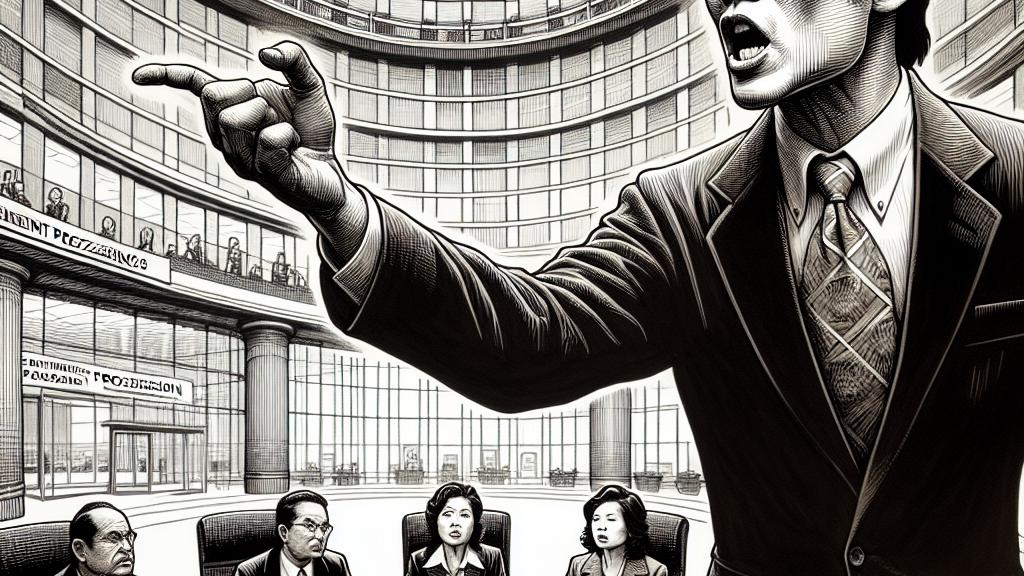Yamada Taro Storms VISA HQ: A Showdown Over Content Regulation!
Overview
- Yamada Taro boldly confronts VISA executives about content restrictions.
- VISA publicly states it does not impose specific word bans on content.
- The discussion reflects broader themes of artistic freedom and regulation in Japan.

The Scene at VISA Headquarters
In a daring move, Japanese Senator Yamada Taro made headlines by directly confronting the executives at VISA headquarters. Amidst rising concerns about content regulation and censorship in Japan's creative industry, Yamada's approach sought to clarify VISA's policies regarding content restrictions. Meeting with top executives, he demanded explicit confirmation that VISA does not impose specific bans on words or themes in the content transactions it facilitates. This direct engagement is crucial for artists and content creators, as it underscores the importance of transparent corporate policies that allow for creative expression to flourish without the threat of censorship.
Deep Implications for Freedom of Expression
The implications of Yamada's assertive dialogue extend beyond a single corporate response; they reflect the broader struggles around freedom of expression within Japan's societal and political landscape. As financial institutions increasingly wield power over what types of content can be supported, conversations like these emphasize the need for clear and fair policies that protect artistic integrity. Yamada advocates for the arts, highlighting that safeguarding creators from undue restrictions is essential for fostering a vibrant cultural landscape. This discussion not only addresses the immediate concerns of censorship but also calls for a re-evaluation of how financial entities influence creative work in an era where digital content thrums at the heart of culture.
Public Reaction and the Road Ahead
The response to Yamada's bold actions has sparked significant public dialogue surrounding artistic freedom in the age of digital interaction. Many supporters laud his commitment to preserving creators' rights, while dissenters raise apprehensions about the possible dangers of overregulating expressive content. As these discussions evolve, all eyes are on prominent corporations like VISA to uphold standards that balance the necessity of responsible content management with the vibrant diversity of creative expression. Looking to the future, the outcomes of this confrontation may set substantial precedents for how Japan, and potentially other nations, address content regulation amidst the rapid advancement of digital platforms, ultimately influencing the global dialogue on expression and censorship.

Loading...